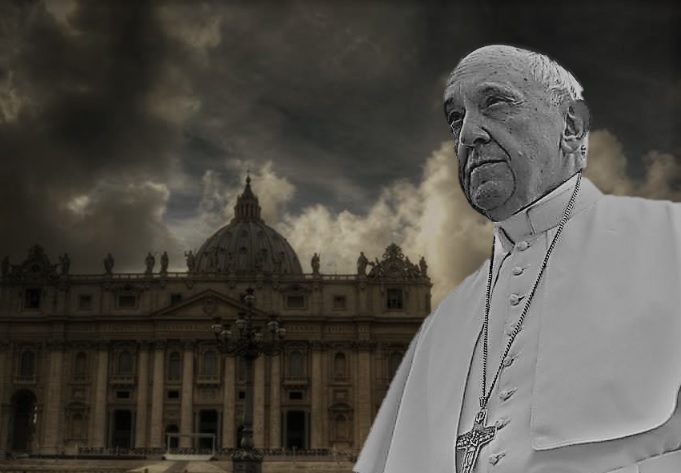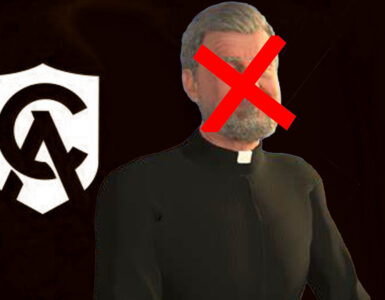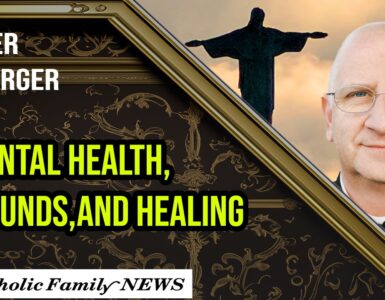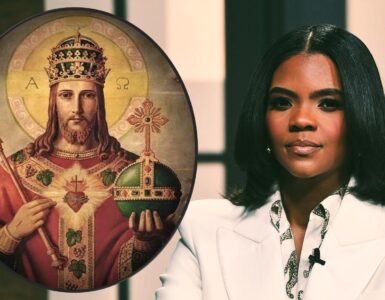Throughout the past several weeks, the attention of the world and especially the Church has been firmly fixed on clergy sexual abuse. This is certainly justified, considering the steady stream of sickening revelations, most notably, those involving ex-Cardinal Theodore McCarrick, the archdiocesan major seminary in Tegucigalpa (Honduras), the diocese of Lincoln, Nebraska, and the Pennsylvania Grand Jury Report (there are others, of course, but these are the cases that immediately come to mind).
This focus has increased exponentially, and rightly so, following the explosive testimony of Archbishop Carlo Maria Viganò, whose historic and courageous act has facilitated a much needed day of reckoning for both the Lavender Mafia and the Dictator Pope (unbelievably, the latter continues to maintain silence about the devastating indictment against him, which certainly seems to be credible).
All of these stunning developments notwithstanding, there remains another grave crisis that appears to have been largely forgotten, namely, the papal “propagation of heresies” (Correctio filialis). And while it may not be immediately obvious, there is a direct correlation between apostasy (loss of faith) and moral corruption, which I have discussed elsewhere.
Cardinal Raymond Burke, it seems, has not forgotten about the doctrinal crisis. The Associated Press recently reported that Burke, one of the four Dubia Cardinals, spoke at a conference in Rome held in honor of Cardinal Carlo Caffarra (likewise one of the four) on Sept. 6, the first anniversary of Caffarra’s death. Burke, who according to the AP “said he was ‘deeply shaken’ by” Archbishop Viganò’s testimony, was also quoted as follows concerning the cardinals’ famous dubia (dated Sept. 19, 2016), which was hand-delivered to the Pope:
“The dubia must have a response sooner or later,” Burke said. “It’s a simple response: Yes or no. That’s all. It’s not complicated.”
What About the Formal Correction?
The irony of his evident frustration, however, is that he has still not issued the long-awaited formal correction of Pope Francis — that is, a public warning (cf. Tit. 3:10-11) before the whole Church (cf. Matt. 18:15-17) to determine pertinacity (obstinate heresy) — which he first mentioned nearly two years ago.
To refresh our memories, here is what Cardinal Burke stated during an interview with LifeSiteNews in December of 2016 concerning the dubia and the absolute need for answers:
“Well[,] the dubia have to have a response because they have to do with the very foundations of the moral life and of the Church’s constant teaching with regard to good and evil, with regard to various sacred realities like marriage and Holy Communion and so forth. What format it would take is very simple; namely[,] it would be direct, even as the dubia are, only in this case there would no longer be raising questions, but confronting the confusing statements in Amoris Laetitia with what has been the Church’s constant teaching and practice, and thereby correcting Amoris Laetitia. It’s an old institute in the Church, the correction of the pope. This has not happened in recent centuries, but there are examples and it’s carried out with the absolute respect for the office of the Successor of Saint Peter, in fact, the correction of the pope is actually a way of safeguarding that office and its exercise. When will it take place? Now of course we are in the last days, days of strong grace, before the Solemnity of the Nativity of Our Lord, and then we have the Octave of the Solemnity and the celebrations at the beginning of the New Year – the whole mystery of Our Lord’s Birth and His Epiphany – so it would probably take place sometime after that [i.e. sometime after the Feast of the Epiphany 2017].” [Emphasis added]
Several months later, in a multi-part interview with The Wanderer (August 2017), Cardinal Burke reiterated:
“The process [of formal correction] has not been frequently invoked in the Church, and not now for several centuries. There has been the correction of past Holy Fathers on significant points, but not in a doctrinal way. It seems to me that the essence of the correction is quite simple. On the one hand, one sets forth the clear teaching of the Church; on the other hand, what is actually being taught by the Roman Pontiff is stated. If there is a contradiction, the Roman Pontiff is called to conform his own teaching in obedience to Christ and the Magisterium of the Church.
The question is asked, ‘How would this be done?’ It is done very simply by a formal declaration to which the Holy Father would be obliged to respond. Cardinals Brandmüller, Caffarra, Meisner, and I used an ancient institution in the Church of proposing dubia to the Pope.” [Emphasis added]
Francis Must Be Confronted Directly
The Amoris-Dubia Drama, as I call it, has since been compounded by the Pope’s denial of the legitimacy of capital punishment via his “revision” of the post-conciliar Catechism of the Catholic Church (para. 2267), which is arguably a more blatant error than the dubious portions of Amoris Laetitia. In the words of Dr. Peter Kwasniewski,
“With this move, Pope Francis has shown himself to be openly heretical on a point of major importance, teaching a pure and simple novelty…
…
Whether Francis is a formal heretic—that is, fully aware that what [his] teaching on capital punishment is contrary to Catholic doctrine, and proves pertinacious in maintaining his position in spite of rebuke—is a matter to be adjudicated by the College of Cardinals.” [Emphasis added]
This is precisely why Cardinal Burke, along with whoever else among the hierarchy who is willing, must publicly correct Francis “to the face” (Gal. 2:11). Nothing else will suffice.
Consider Archbishop Viganò’s call for “Pope Francis” and all “cardinals and bishops who covered up McCarrick’s abuses” to “resign”. Even if Viganò’s call garners wide support, Francis is in no way obliged to comply, and the Church has no authority to depose the Pope, even for the gravest moral failings (this would be Conciliarism, itself a heresy). If, however, Francis is established and declared a formal heretic “by competent ecclesiastical authority” (Correctio filialis, Elucidation, n. 16), that would have a real effect (see here and here for in-depth treatments).
Hence, if Cardinal Burke and others in the hierarchy are serious about dealing with Francis, they must issue the formal correction, without which the Church will remain at the mercy of him who is truly the Dictator Pope.
In the meantime, let us stand fast with Our Lady at the foot of the Cross during this “passion of the Church,” as Benedict XVI once described it (and Archbishop Georg Gänswein recently reiterated), knowing “that to them that love God, all things work together unto good” (Rom. 8:28).




